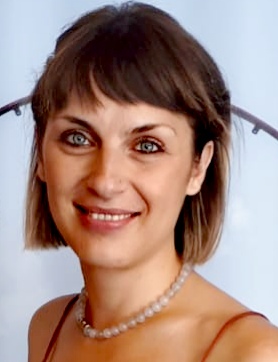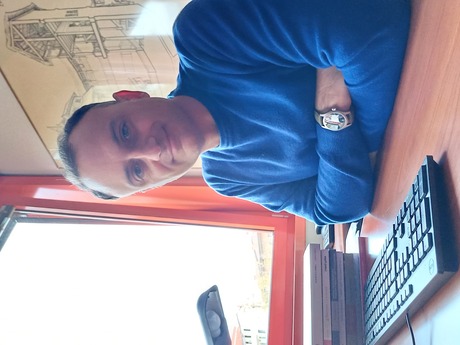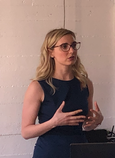Studying at the University of Verona
Here you can find information on the organisational aspects of the Programme, lecture timetables, learning activities and useful contact details for your time at the University, from enrolment to graduation.
Academic calendar
The academic calendar shows the deadlines and scheduled events that are relevant to students, teaching and technical-administrative staff of the University. Public holidays and University closures are also indicated. The academic year normally begins on 1 October each year and ends on 30 September of the following year.
Course calendar
The Academic Calendar sets out the degree programme lecture and exam timetables, as well as the relevant university closure dates..
| Period | From | To |
|---|---|---|
| I semestre (Lingue e letterature straniere) | Sep 27, 2021 | Jan 8, 2022 |
| II semestre (Lingue e letterature straniere) | Feb 14, 2022 | May 28, 2022 |
| Session | From | To |
|---|---|---|
| ESAMI LINGUE - sessione invernale | Jan 10, 2022 | Feb 12, 2022 |
| ESAMI LINGUE - sessione estiva | May 30, 2022 | Jul 23, 2022 |
| ESAMI LINGUE - sessione autunnale | Aug 29, 2022 | Sep 24, 2022 |
| Session | From | To |
|---|---|---|
| LAUREE LINGUE - sessione autunnale (a.a. 2020-2021) | Nov 8, 2021 | Nov 13, 2021 |
| LAUREE LINGUE - sessione straordinaria (a.a. 2020-2021) | Mar 28, 2022 | Apr 2, 2022 |
| LAUREE LINGUE - sessione estiva (a.a. 2021-2022) | Jul 11, 2022 | Jul 16, 2022 |
Exam calendar
Exam dates and rounds are managed by the relevant Foreign Languages and Literatures Teaching and Student Services Unit.
To view all the exam sessions available, please use the Exam dashboard on ESSE3.
If you forgot your login details or have problems logging in, please contact the relevant IT HelpDesk, or check the login details recovery web page.
Should you have any doubts or questions, please check the Enrollment FAQs
Academic staff
Bejarano Bejarano Daniel Eduardo
 danieleduardo.bejaranobejarano@univr.it
danieleduardo.bejaranobejarano@univr.it
 natascia.fregonese@univr.it
natascia.fregonese@univr.it
 piergiovanna.grossi@univr.it
piergiovanna.grossi@univr.it
 elena.mattei@univr.it
elena.mattei@univr.it
 sara.paolini@univr.it
sara.paolini@univr.it
Study Plan
The Study Plan includes all modules, teaching and learning activities that each student will need to undertake during their time at the University.
Please select your Study Plan based on your enrollment year.
1° Year
| Modules | Credits | TAF | SSD |
|---|
1ST FOREIGN LANGUAGE2ND FOREIGN LANGUAGE1ST FOREIGN LITERATURE2ND FOREIGN LITERATURE2° Year activated in the A.Y. 2022/2023
| Modules | Credits | TAF | SSD |
|---|
1ST FOREIGN LANGUAGE2ND FOREIGN LANGUAGE1ST FOREIGN LITERATURE2ND FOREIGN LITERATUREPHILOLOGY RELATED TO 1ST OR 2ND FOREIGN LANGUAGEIntroduction to Germanic Philology
3° Year activated in the A.Y. 2023/2024
| Modules | Credits | TAF | SSD |
|---|
1ST FOREIGN LANGUAGE2ND FOREIGN LANGUAGE| Modules | Credits | TAF | SSD |
|---|
1ST FOREIGN LANGUAGE2ND FOREIGN LANGUAGE1ST FOREIGN LITERATURE2ND FOREIGN LITERATURE| Modules | Credits | TAF | SSD |
|---|
1ST FOREIGN LANGUAGE2ND FOREIGN LANGUAGE1ST FOREIGN LITERATURE2ND FOREIGN LITERATUREPHILOLOGY RELATED TO 1ST OR 2ND FOREIGN LANGUAGEIntroduction to Germanic Philology
| Modules | Credits | TAF | SSD |
|---|
1ST FOREIGN LANGUAGE2ND FOREIGN LANGUAGE| Modules | Credits | TAF | SSD |
|---|
3rd foreign language B1 levelLegend | Type of training activity (TTA)
TAF (Type of Educational Activity) All courses and activities are classified into different types of educational activities, indicated by a letter.
Spanish language 2 (2022/2023)
Teaching code
4S002918
Academic staff
Coordinator
Credits
9
Language
Spanish
Scientific Disciplinary Sector (SSD)
L-LIN/07 - LANGUAGE AND TRANSLATION - SPANISH
Period
II semestre (Lingue e letterature straniere) dal Feb 13, 2023 al May 27, 2023.
Learning objectives
The course aims at helping students: – know the basic theoretical concepts of Spanish Phonetics and Phonology; – know normative aspects of Spanish pronunciation; – know the phonetic and phonological system of Spanish in contrast with Italian; – think about phonetic and phonological structures of both languages by means of phonetic transcriptions; – do phonetic and phonological transcriptions; – observe the differences between pronunciation and spelling; – produce phonetically correct speech; – know the main digital oral corpora created both for specific purposes and for purposes not directly related to the analysis of the phonic components with the objective of appreciating their usefulness and their potential use for a deeper understanding of the Spanish language at phonetic and phonological level. Furthermore, B2 language level of competence in Spanish (according to the Common European Framework of Reference for Languages) is also required.
Prerequisites and basic notions
Spanish proficiency level B2 (or higher) is a prerequisite for sitting the final exam; it corresponds to 3 out of 9 CFU awarded by this course.
Proficiency level validation is based on certificates issued by CLA (Centro Linguistico di Ateneo) or by Instituto Cervantes (the certificate must be validated by CLA and published in the appropriate list) and it is a requirement for the exam with the lecturer for Lengua española 2.
As detailed in "Vademecum normativo per gli studenti dell'Area di Lingue e Letterature Straniere", B2 certificate is valid for 4 years.
Before sitting the final exam students must have passed and registered the following exams (as stated in "Vademecum normativo per gli studenti dell'Area di Lingue e Letterature Straniere"): Lengua española 1 and Literatura española 1.
PREREQUISITES: Students taking this exam must have already passed the exams of Spanish Language and Literature of the 1st year.
Erasmus students should contact the teacher.
Program
The course intends to outline the phonetic and phonological systems of contemporary standard Spanish. The fundamental concepts of Spanish phonetics, exemplified in detail with transcriptions, as well as those elements emerging from a contrastive analysis between the Italian and the Spanish systems, will be examined.
Part I of the course will focus on theoretical aspects of this subject, such as the phonatory apparatus, phonology, phonetics, phoneme, phone etc.; Part II will focus on the phonetic and phonological contrastive analysis of Italian and Spanish (phonemes, allophones, phonetic alphabet, prosodic aspects). Part III of the course will focus on practical aspects of this subject: in particular, the theoretical concepts acquired in the first part of the course will be applied to make phonological and phonetic transcription and highlights will be provided on phonetic aspects relating to pronunciation in the digital book market in Spanish language.
All teaching material used during the course (presentations, texts, short essays and articles etc.) is part of the bibliography for the final exam and will be available on the Moodle platform.
BIBLIOGRAPHY
- Ávila, Raúl (2011): “El español neutro (?) en los medios de difusión internacional”, in Raúl Ávila (ed.), Variación del español en los medios, México, El Colegio de México, pp. 17-30 (PDF on Moodle).
- Canepari, Luciano; Miotti, Renzo (2013), Pronuncia spagnola per italiani. Fonodidattica contrastiva naturale, Roma, Aracne: ch. 4. Per conoscer l'intonazione, pp. 65-77, and ch. 7. Minipronunciario, pp. 107-142.
- Cordón-García, José-Antonio (2018): “Leer escuchando: reflexiones en torno a los audiolibros como sector emergente”, Anuario ThinkEPI, v. 12, pp. 170-182 (PDF on Moodle).
- RAE-ASALE, Nueva gramática de la lengua española. Fonética y Fonología, Barcelona, Espasa Libros, pp. 435-441 and 466-472 (PDF on Moodle).
Bibliography
Didactic methods
Lectures will be supported by Powerpoint presentations and by multimedia material. Some lectures will be devoted to phonetic transcriptions.
Learning assessment procedures
The exam consists of a test on theoretical and practical questions related to the course program, the bibliography and the didactic materials provided in e-learning mode. Both the formulation of the questions and the answers will be made in writing and in Spanish. The test consists of open-ended questions, multiple-choice questions and exercises. Some require metalinguistic reflection, the ability to detect phenomena handled throughout the course and to provide examples of them. For students who do not attend class, the program and the form of evaluation are the same.
Evaluation criteria
The exam will be a written test that will ascertain the depth of knowledge acquired on the topics on the syllabus, as well as the correct use of language, the terminological precision, and the ability to connect the information as a network of knowledge.
Criteria for the composition of the final grade
The final mark will be expressed in a scale of 30 and will be the arithmetic mean between the grade obtained in the written test and the grade from the Spanish proficiency exam (converted in a scale of 30 in accordance with the indications detailed in “Vademecum normativo per gli studenti dell'Area di Lingue e Letterature Straniere").
Exam language
Spagnolo - Español
Type D and Type F activities
Nei piani didattici di ciascun Corso di studio è previsto l’obbligo di conseguire un certo numero di CFU di tipologia D e di tipologia F.
CFU D (attività a scelta dello studente)
I CFU D possono essere acquisiti mediante:
- insegnamenti non obbligatori nel proprio piano didattico (previa approvazione del Presidente del Collegio didattico per insegnamenti non selezionabili in autonomia)
- attività accreditate dal Collegio didattico
- competenze linguistiche (diverse o ulteriori) rispetto a quelle obbligatorie
- tirocini o stage
- TALC (competenze trasversali).
Competenze trasversali TALC
Nota bene: i corsi TALC sono riconosciuti solo come CFU D.
Il numero di CFU D va calcolato complessivamente sull’intero triennio/biennio e non è legato all'annualità.
CFU F
I CFU F sono solitamente relativi ad abilità informatiche, competenze linguistiche, stage e tirocini e ulteriori attività formative accreditate in questa tipologia dal Collegio Didattico.
Nel corso di laurea in Lingue e letterature per l’editoria e i media digitali sono previste le seguenti tipologie:
- 3 CFU per terza lingua (livello B1)
- 6 CFU per tirocinio obbligatorio
- 3 CFU per informatica (curriculum Editoria)
- 9 CFU per laboratori (curriculum Digital Humanities).
Le competenze informatiche possono essere acquisite attraverso:
- il superamento della prova pratica presso le aule informatiche di Ateneo,
- la frequenza dei corsi attivati da scuole e centri accreditati dall’AICA (Associazione Italiana per l’Informatica e il Calcolo Automatico) o riconosciuti dalla Provincia e dalla Regione e superamento della relativa prova finale. Le domande per il riconoscimento delle competenze informatiche acquisite precedentemente vengono esaminate dalla Commissione per il riconoscimento delle Competenze Informatiche.Le attività di tirocinio sono finalizzate a far acquisire allo studente una conoscenza diretta nel settore editoriale e delle Digital Humanities nonché abilità specifiche d’interesse professionale (revisione bozze, grafica editoriale, costruzione di pagine web, archivi digitali etc.).
| years | Modules | TAF | Teacher |
|---|---|---|---|
| 1° 2° 3° | Introduction to robotics for humanities students | D |
Paolo Fiorini
(Coordinator)
|
| years | Modules | TAF | Teacher |
|---|---|---|---|
| 1° 2° 3° | Wikimedia workshop for international dissemination of cultural heritage | D |
Piergiovanna Grossi
(Coordinator)
|
To discover all the teaching activities accredited by the foreign teaching college click here
Career prospects
Module/Programme news
News for students
There you will find information, resources and services useful during your time at the University (Student’s exam record, your study plan on ESSE3, Distance Learning courses, university email account, office forms, administrative procedures, etc.). You can log into MyUnivr with your GIA login details: only in this way will you be able to receive notification of all the notices from your teachers and your secretariat via email and soon also via the Univr app.
Student login and resources
Gestione carriere
Assegnazione tutore
Attività accreditate D/F
Calendario didattico dettagliato
Cambio lingua curriculare
Competenze informatiche
Competenze linguistiche (prima e seconda lingua)
Competenze linguistiche in triennale (terza lingua CFU F)
Compilazione del piano didattico
Corso di Lingua portoghese
Erasmus+ e altre esperienze all'estero
Linguistic training CLA
Presentazione dei corsi di studio e Open day
Graduation
List of theses and work experience proposals
| Stage | Research area |
|---|---|
| PROGETTO MAMBRINO Stage per bibliografia | Various topics |
Saperi minimi
Stage e tirocini
Nel piano didattico della laurea triennale in Lingue e letterature per l’editoria e i media digitali (L11 ED-DH) è previsto un tirocinio/stage obbligatorio (CFU 6).
Le attività di stage sono finalizzate a far acquisire allo studente una conoscenza diretta in settori di particolare interesse per l’inserimento nel mondo del lavoro e per l’acquisizione di abilità professionali specifiche.
Le attività di stage sono svolte sotto la diretta responsabilità di un singolo docente presso studi professionali, enti della pubblica amministrazione, aziende accreditate dall’Ateneo veronese.
I crediti maturati in seguito ad attività di stage saranno attribuiti secondo quanto disposto nel dettaglio dal “Regolamento d’Ateneo per il riconoscimento dei crediti maturati negli stage universitari” vigente.
- Tutte le informazioni in merito agli stage per futuri studenti sono disponibili alla pagina Stage e tirocini.
- Tutte le informazioni in merito agli stage per studenti iscritti sono pubblicate in MyUnivr - come fare per - stage e tirocini.
- Tutte le informazioni in merito agli stage per le aziende sono disponili alla pagina Stage e tirocini per azienze.
Ulteriori informazioni al seguente link https://www.univr.it/it/i-nostri-servizi/gestione-carriere-studenti-lingue-e-letterature-straniere/stage-e-tirocini-lingue-e-letterature-straniere

 +39 045802 8409
+39 045802 8409










































